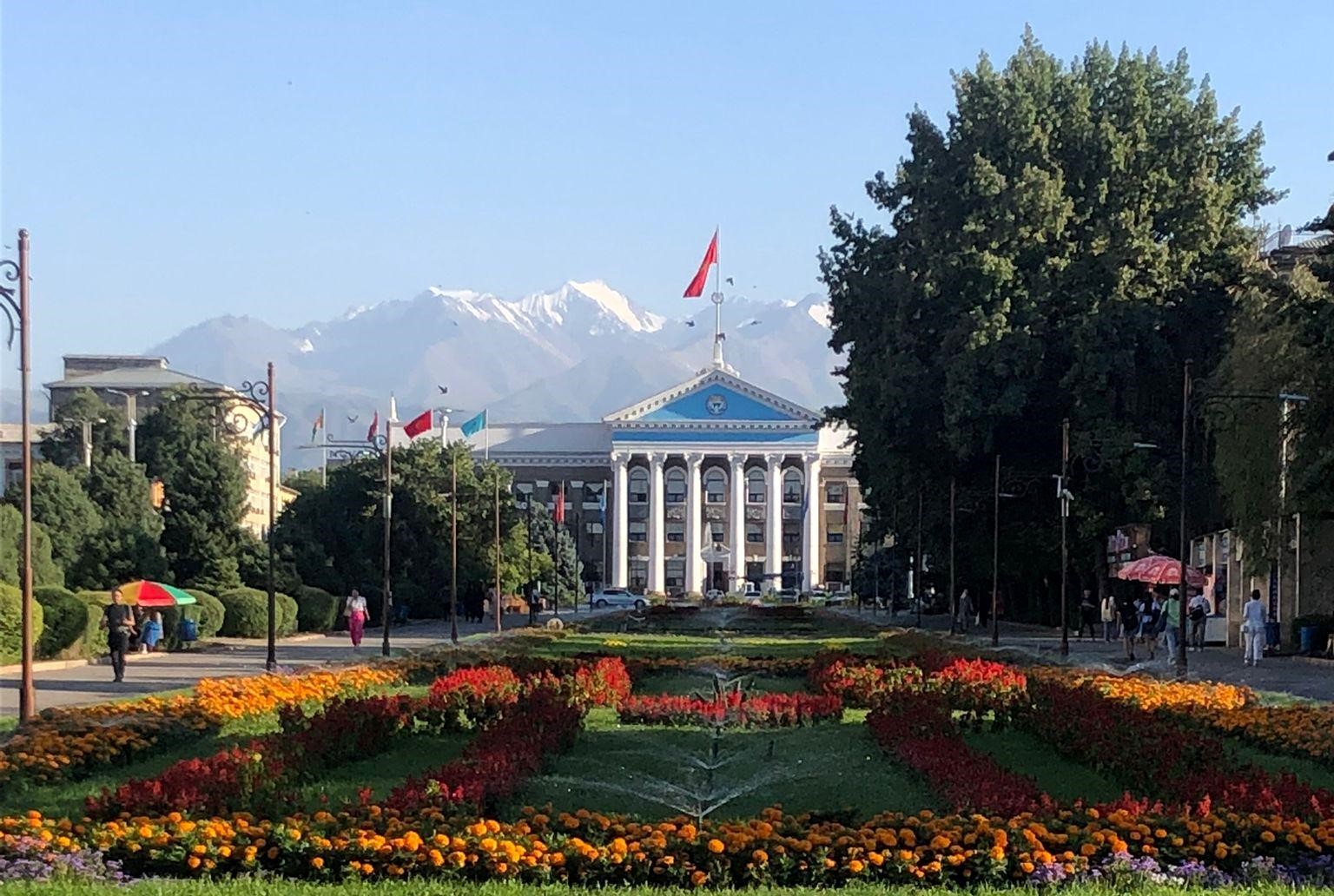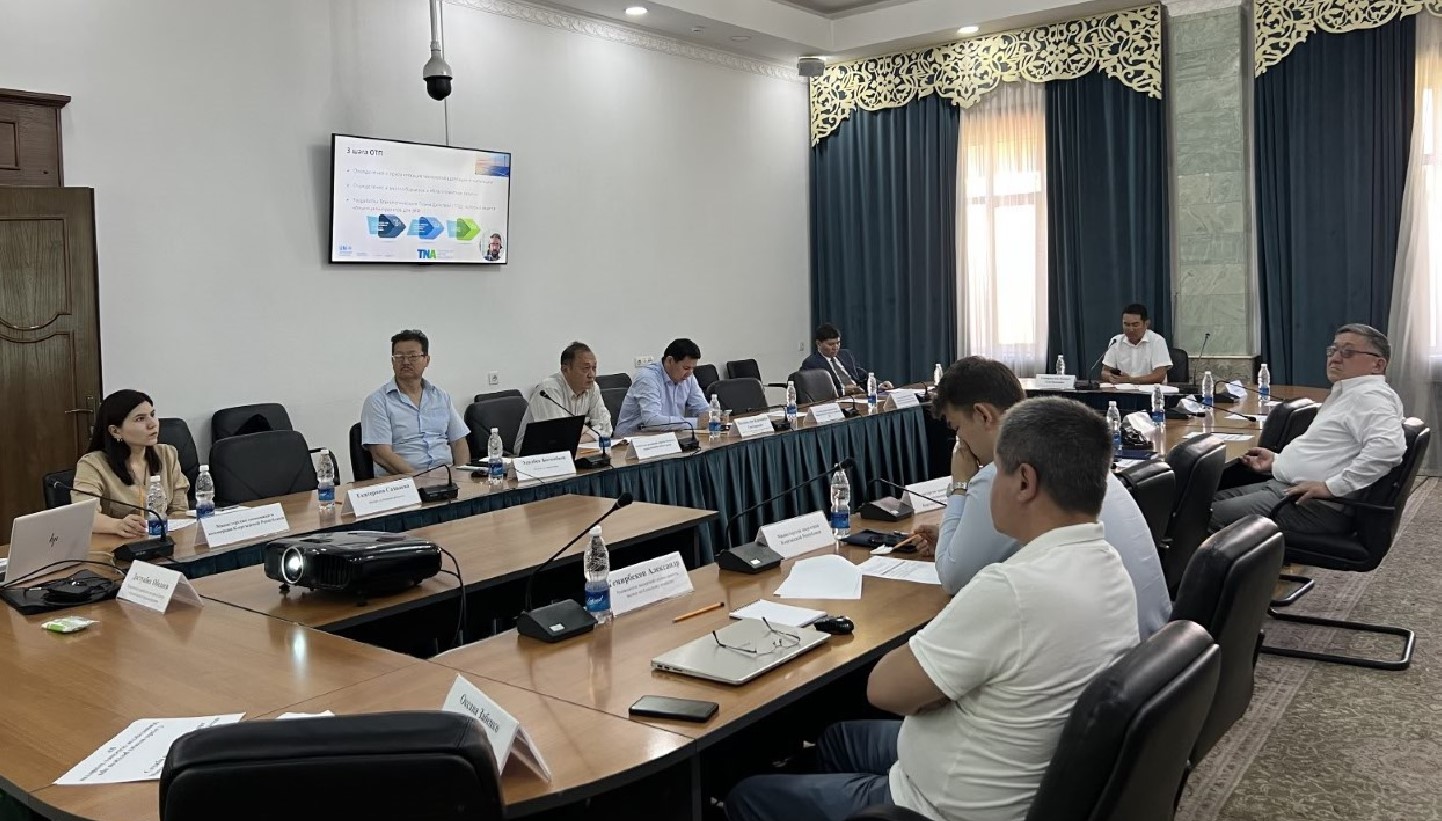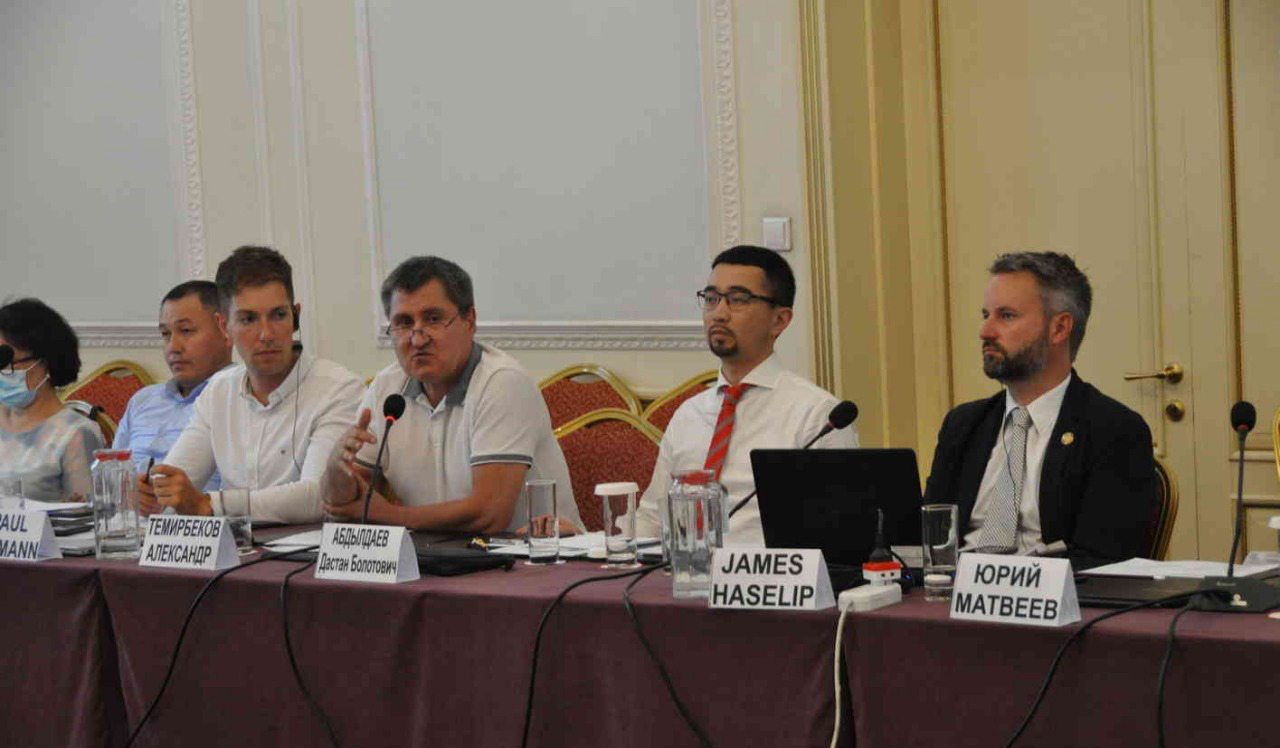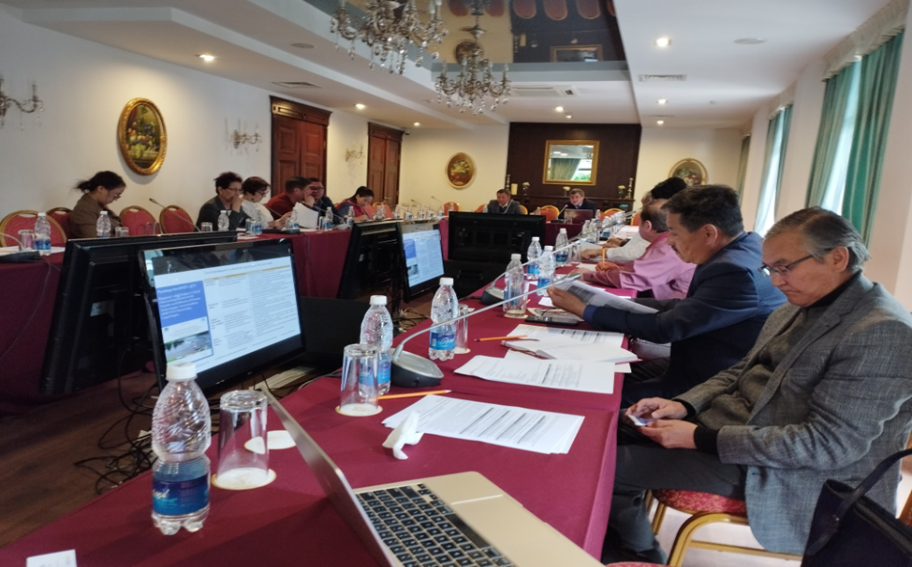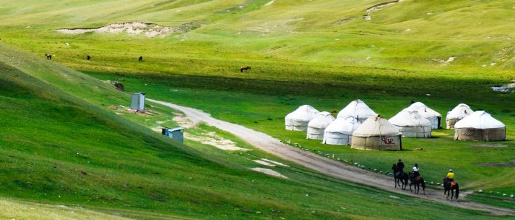The TNA project was requested by the Government of the Kyrgyz Republic, who approached the Climate Technology Centre and Network (CTCN) to be the executing agency. UNEP-CCC is the implementing partner. The project is funded through the country’s GCF readiness allocation for 2020.
The project is anchored in the national Climate Finance Centre, hosted by the Ministry of Natural Resources, Environment and Technical Supervision and focuses on 4 x sectors that align with the priorities stated in the country’s revised NDC published in 2021. Namely the agriculture, energy, water and waste sectors covering both mitigation and adaptation-side needs.
The Kyrgyz Republic is a land-locked and mountainous country located in the northeast of Central Asia, more than 90% of which lies above 1500m elevation and 1/3 above 3000m. The country is home to 6.7 m people, who reside mostly in the foothills and in two urban areas; the capital Bishkek in the north and between Osh and Jalal-Abad in the south.
Agriculture is the country largest sector, the main products being cotton, tobacco, wool and meat. Industrial exports include gold, mercury, agricultural products and electricity.
However, measured by GDP per capita the Kyrgyz Republic is ranked 150th by the IMF with an income of 5,562 USD (PPP), with a high (24%) poverty rate. Income from remittances was estimated to make up 28.5% of GDP in 2019, reflecting the estimated 0.5% annual rate of outward migration of working age people between 2005-2015.
While access to electricity is relatively high, the system suffers from a chronic lack of investment, characterised by aged infrastructure and significant technical losses and inefficiencies caused by deep and long-term subsidies. There is good potential to decarbonise the generation capacity, which currently relies on a mix of hydro and coal.
In terms of climate risks, the Kyrgyz Republic is projected to experience temperature rises significantly above the global average. According to the highest emissions pathway (RCP8.5), warming against the 1986–2005 baseline period could reach 5.3°C by the 2090s. Climate projections for maximum and minimum temperatures are an acute climate risk for human lives, livelihoods (especially agricultural yields) and ecosystems.
The water sector is projected to experience a major long-term impact, where the loss of mountain glaciers may reduce flows of fresh water and result in scarcity of supply. Equally, climate change is likely to increase the risk of flooding and landslides. The impacts of such events will disproportionately affect the poorest and most marginalized groups.
The technical work is being delivered by the following team, representing UNEP-CCC:
Local Expert Team
- Aleksandr Temirbekov, agriculture sector expert and local team lead
- Edilbek Bogombaev, energy sector expert
- Ekaterina Sakhvaeva, water sector expert
- Oksana Zabenko, waste sector expert
- Isken Dunkanaev, project assistant
International Expert Team
- Ala Druta, regional expert consultant for adaptation
- Yuri Matveev, regional expert consultant for mitigation
- James Haselip, senior advisor
- Paul Riemann, project officer
The Government focal person for the TNA is Mr. Azamat Temirkulov, Director of the Climate Finance Center under the Ministry of Natural Resources
Technology Needs Assessment Reports:
Technology Prioritization – Adaptation (part 1)
Technology Prioritization – Mitigation (part 2)
Barriers Analysis and Enabling Frame-work Report – Adaptation (part 1)
Barriers Analysis and Enabling Frame-work Report – Mitigation (part 2)
Technology Action Plans – Adaptation (part 1)
Technology Action Plans – Mitigation (part 2)
Share this
Country / Region: Kyrgyz Republic








